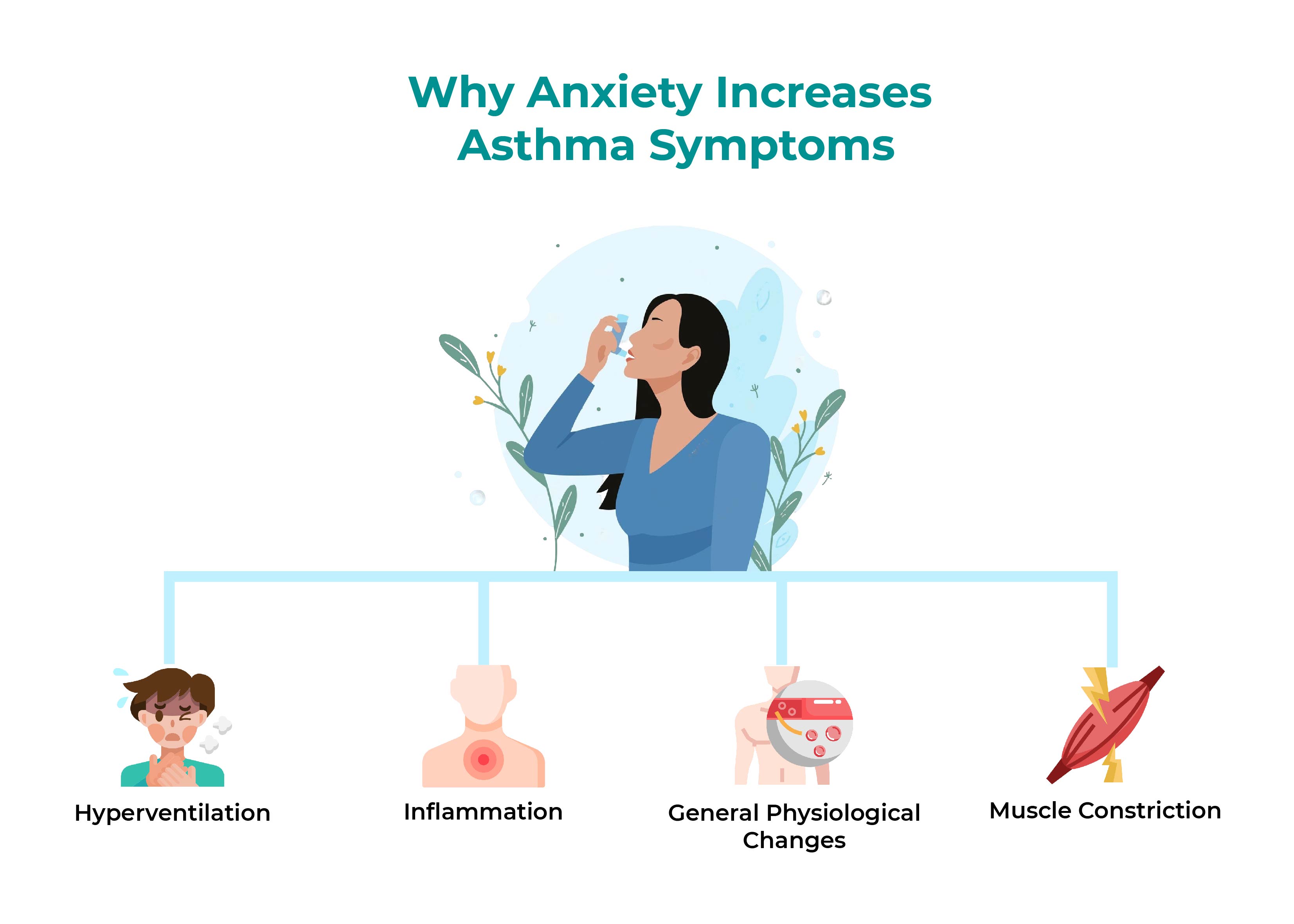Dealing with Severe Asthma: Its effects on Mental Health
Jan 04, 2023
There is a dearth of research-based literature on the mental and emotional well-being of patients with severe asthma. The relationship between mental health, the course of asthma, and the results of asthma treatment, however, is becoming more widely recognized. People with chronic illnesses frequently experience anxiety, panic attacks, and depressive symptoms. Although the connection between the two conditions is not fully understood, it is obvious that anxiety and depression can have a negative impact on how asthma develops, leading to worsened symptoms, a greater need for medical attention, and more frequent asthma episodes and exacerbations.
In addition to making many patients more anxious and depressed, having a potentially fatal illness like severe asthma can also cause panic episodes in certain people. A person's capacity to self-manage their asthma may also be hampered by the physical and mental exhaustion that comes with despair and anxiety. Let’s discuss what all situations trigger anxiety and how they can be managed.
Joining the Dots of Steroids and Mental Health
Compared to patients with mild-moderate asthma or severe asthma not dependent on steroids, people with severe steroid-dependent asthma exhibit much greater symptoms of anxiety and sadness. The relationship between steroids and mental health is considered a two-way road. The use of oral corticosteroids leads to anxiety and depression. Although people who are dependent on steroids for asthma are likely to get benefits from psychological intervention. When prescribing, analyzing treatment response, or monitoring adherence to a regimen, it's critical to take corticosteroid side effects on mental health into account, particularly during asthma exacerbations.
Anxiety and Asthma
A continual threat to life exists for persons who have severe asthma, which can be unpleasant. Along with physical symptoms that can contribute to more significant anxiety and panic attacks, anxiety results in worry and tension. Because of the complexity of their relationship, anxiety and asthma should not be evaluated or treated separately. The most common and valid reasons why anxiety increases asthma symptoms are as follows:-
- Hyperventilation
- Inflammation
- General Physiological Changes
- Muscle Constriction

Hyperventilation
Anxiety alters one's breathing patterns. Numerous studies have demonstrated that hyperventilation enhances the possibility of an asthma attack, regardless of whether it is brought on by a problem (such as anxiety). Therefore, those who are more prone to hyperventilating due to anxiety may unwittingly force their own attack symptoms.
Inflammation
Inflammation can be brought on by stress. The inflammation that triggers asthma is not likely to be brought on by stress, but it is possible that stress makes it more difficult to control the inflammation when your asthma symptoms are acting up.
General Physiological Changes
Stress does have some physical effects that may aggravate asthma symptoms. For instance, anxiety can produce an overproduction of histamine, the allergen-causer molecule, which can result in asthma attacks. Stress may also compromise your immune system, making you more susceptible to viruses and environmental asthma triggers.
Muscle Constriction
Constriction of the muscles occurs frequently with anxiety. Asthma triggers can include chest tightness and other conditions brought on by tight muscles.
Although it doesn't seem like worry may actually cause asthma, there are plenty of signs that it can certainly make it worse, especially if you already experience chronic stress or anxiety.
Taking Control Over Asthma and Anxiety
A person's usual asthma self-management habits are likely to be disrupted by stress, worry, and depression, which raises the possibility of an exacerbation. However, the advantages of psychologically based therapies for persons with severe asthma have only been studied in a small number of trials. A holistic approach to treatment emphasizes the emotional, mental, spiritual, and physical components of each person making up a system.
The long-standing medical theory holds that treating chronic conditions like asthma necessitates a more comprehensive approach. In accordance with holistic medicine, which also provides a way of healing, asthma is seen as a disorder that is treatable. If not treated in a holistic manner, chronic diseases like asthma can follow you for the rest of your life, causing unremitting agony and ongoing medical problems.
We know the toll asthma can take on day-to-day life, which is why we are proud to offer our FREE Mini-Course that outlines what alternative therapies may be able to do for your condition. Our mini-course is designed to give you the tools and understanding you need to navigate asthma in the best possible way, as well as insight into different natural treatments and holistic practices. Click the link to sign up for our FREE Mini-Course now!

